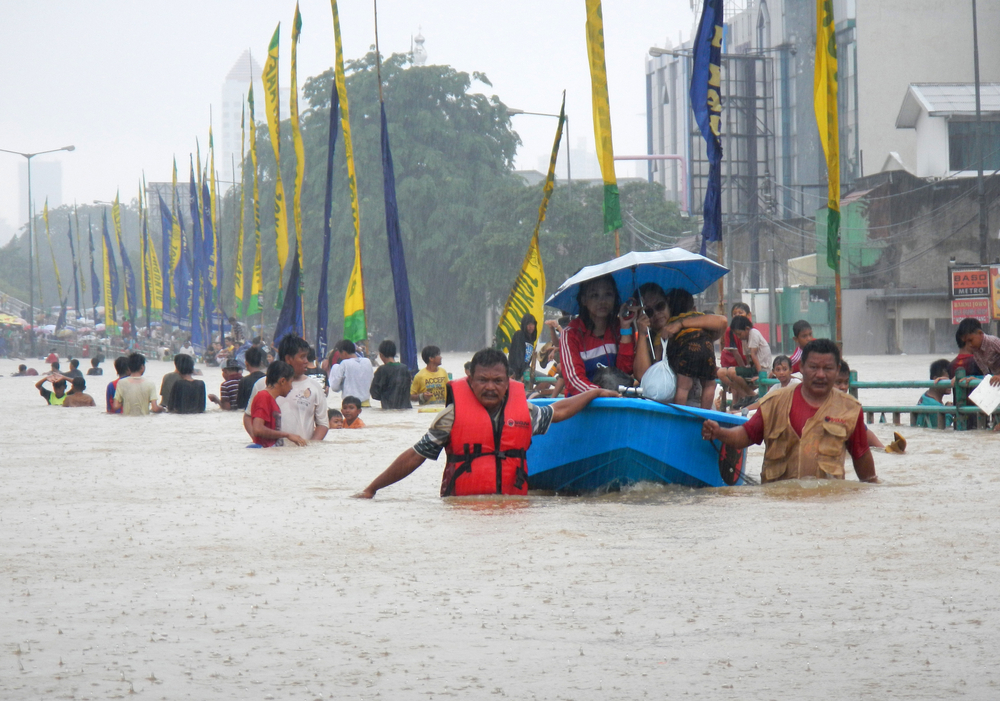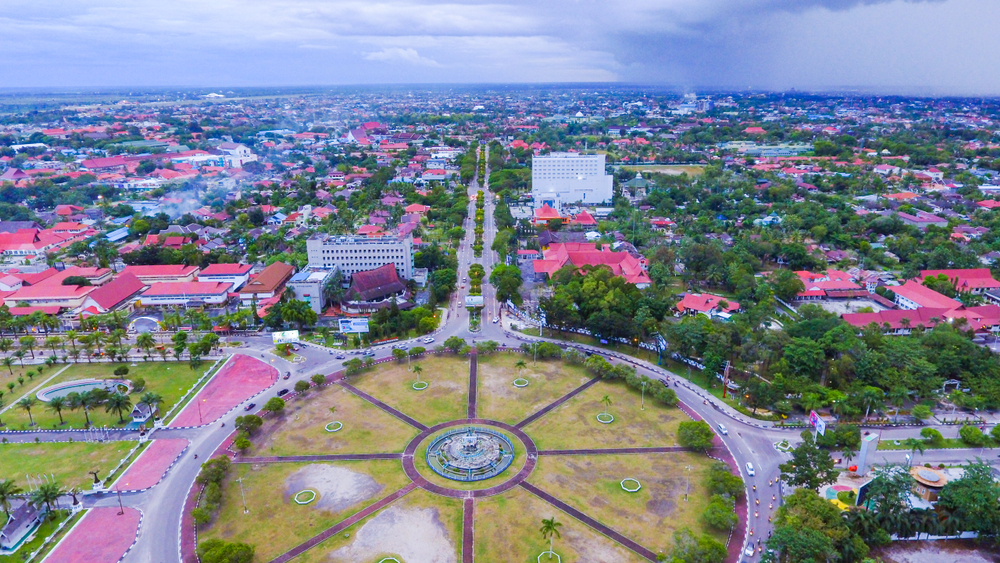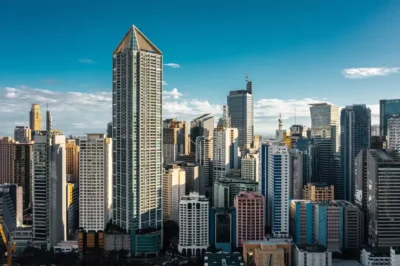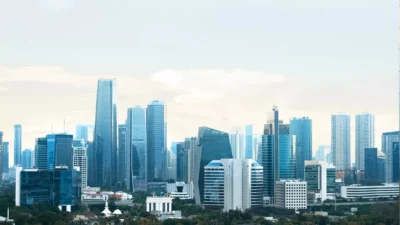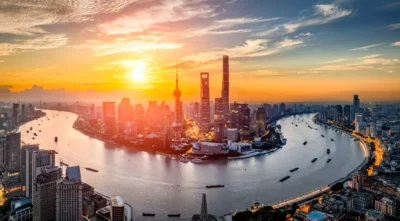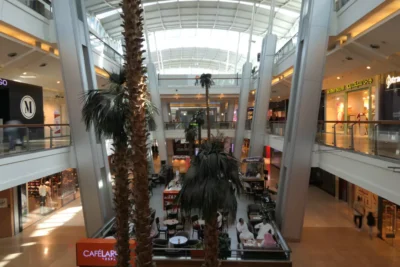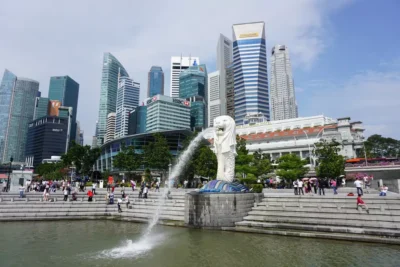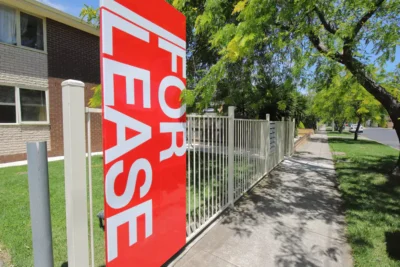Inside Indonesia’s struggle to move its capital
Jakarta’s overloaded infrastructure and depleted resources have once again prompted talk of moving the capital away from north Java
Smelly rivers, foul air, gridlocked roads, and 10 million people—all of them steadily sinking. Jakarta has been left exhausted by its millions of inhabitants for a long time, and now it may be the end of the line for the city: at least when it comes to extending its tenure as Indonesia’s capital.
A relocation of government administrative duties away from the sprawling Javan city has long been mooted as a good idea. And the subject once again hit the headlines earlier this year when Indonesia’s returning president Joko Widodo once again raised the matter as a pressing point of business.
The questions on the lips of everyone since include whether or not President Widodo finally intends to make good on the move and whether it signals the beginning of the end for one of Asia’s most vibrant megacities.
Built on swamp land and touching the sea, Jakarta has proved a problematic place for a capital ever since it was founded by Dutch settlers in the 16th century. Back then inhabitants battled against diseases such as dysentery and malaria; today, it contends with trash-filled canals and endless traffic jams.
As the city’s population has grown rapidly—by seven million people between 2000 and 2010—so, too, have its demands for fresh water, electricity and housing, causing a drain on the city’s resources.
More: Maritime highways to blaze new trail for Indonesia’s neglected property markets
Jakarta relies heavily on groundwater for its drinking and washing needs since piped water is unavailable in most areas. The pumping of groundwater is said to cause the land above it to sink, and which, compounded by rising sea levels as a result of climate change, is causing tidal floods in poor areas on the coast.
A report by the BBC last year established that Jakarta is, in fact, one of the fastest-sinking cities in the world. Citing 20 years’ research by an expert from the Bandung Institute of Technology, the report says that 95 percent of North Jakarta could be underwater by 2050. It states that North Jakarta has sunk 2.5m in 10 years and continues to sink by as much as 25cm a year in some parts. City-dwellers have complained of streets warped by rising water, with entire ground floors of buildings being submerged.
In announcing his desire to move the capital in April, President Joko Widodo was carefully evasive. He says, “The idea to move the capital city appeared long ago… but it has never been decided or discussed in a planned and mature manner.”
In a later Facebook post, he wrote that “Jakarta currently carries two burdens at once: being the centre of government and civil services, as well as being the business centre. In the future, will this city still be able to carry that burden?”
While the location of the new capital has not yet been confirmed, the government seems to be eyeing areas just outside Java, where there is less risk from earthquakes, volcanoes, and flooding. The interior of Kalimantan on Borneo is tipped to be a favourite, with the city of Palangkaraya often mentioned as a possible option. Planning Minister Bambang Brodjonegoro says of moving the capital: “This is a big job, impossible to take just one year, it could take up to 10 years.”
The whole ‘Jakarta is sinking’ story makes for a juicy headline, but the main reason for moving the capital city is to reduce congestion and gridlock, and stimulate economic development in other areas of the country
So what is prompting the move? The fact that Jakarta is sinking would seem like a good enough reason on its own to abandon ship. But that’s only part of a wider scheme to save Jakarta and to stimulate the economy in other parts of the archipelago.
“The whole ‘Jakarta is sinking’ story makes for a juicy headline, but the main reason for moving the capital city is to reduce congestion and gridlock, and stimulate economic development in other areas of the country,” says Jonathan Hills, senior director of CBRE Research for Hong Kong Asia Pacific.
Much of Indonesia’s wealth and development is focused on Java, says Hills, and other parts of the country lag well behind. “Although subsidence remains a huge challenge, it is confined to certain areas (predominantly around North Jakarta) and is mainly due to excess groundwater use rather than rising sea levels.”
Java contributes nearly 60 percent of Indonesia’s gross domestic product, according to data from the Country’s Statistics Agency, while the eastern part of Indonesia, which includes Kalimantan and covers 64 percent of the nation’s total area, contributes only 16.8 percent.
While sharing the wealth more widely would be a positive step, analysts predict Jakarta’s role as the business and commercial hub will not be challenged any time soon. The move is not likely to have a significant impact on its property markets, though as government departments start to move, the new capital should offer fertile ground for developers.
“Obviously the new capital will require massive construction of new and supporting infrastructure and would undoubtedly provide a significant uplift to land values in the area and stimulate considerable new property development and investment activity,” Hills continues.
More: 6 places to go in the Brooklyn of Bali
He adds, however, that enticing people to relocate and live there might prove harder.
Sindi Adinata, director of Knight Frank Indonesia, also believes that a relocation could bring huge benefits to the property market in a new capital. “The first sector that is likely to benefit from the relocation would be the housing market, followed by the commercial property sector, comprising mainly government offices and supporting commercial facilities,” she says.
Yet just when the first bricks for this new seat of government will be laid will depend on quick and decisive action by the president and whether successive governments are likely to undo his work. The many years needed to complete the move will likely see it outlive Widodo’s tenure as leader. Since being re-elected in April for another five-year term, he will be under pressure to push the process as quickly along as possible in that time – a period that will be critical in determining whether Jakarta sinks or swims.
This article originally appeared in Issue No. 155 of PropertyGuru Property Report Magazine
Recommended
Philippine real estate sees growth in regional markets despite challenges in Metro Manila
Amid pressures, developers and investors are capitalising on a range of opportunities to drive growth in the nation's real estate sector
Bali leads the charge in Indonesia’s rental boom while other regions struggle to keep pace
The rental market is soaring in Bali due to its rich cultural heritage and island charm, while other regions of Indonesia are experiencing less success
Rental markets surge in Asia as digital nomads find new opportunities with visa reforms
As countries in Asia roll out customised visa programmes, rental markets are thriving with the influx of remote workers
China’s hospitality market thrives as developers sell off assets to spark recovery
China’s indebted developers are divesting hospitality assets to generate growth and enhance the outlook of the country’s real estate market

